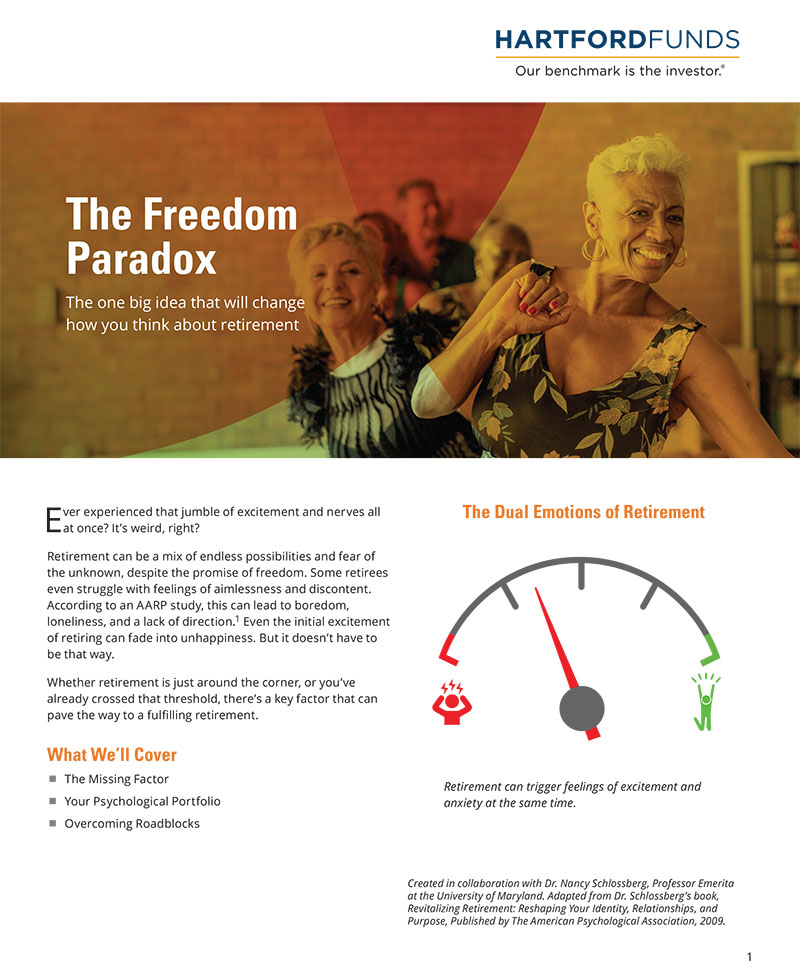In Midlife, Boomers are Happy—And Suicidal
Patricia Cohen’s June 13th, New York Times article, “In Midlife, Boomers are Happy—And Suicidal” highlighted a conundrum. A major study found that those 50 and over are experiencing greater happiness than they did earlier, and another major study found that the suicide rate is increasing for that group. Let me offer one possible explanation. Those in that age group had high expectations for their careers, their relationships, their lives. For some, their dreams were blindsided. We cannot underestimate the power of unmet dreams—what I label non-events. They can lead to despair and in some cases even suicide. Of course it is never one thing alone that pushes one over the edge but experiencing a non-event or non-events can add to the mix.
Live Solid Interview Questions And Answers
Nancy K. Schlossberg, who has spent most of her career as a professor of counseling psychology, is now taking her learnings to the social space. The author has more than 35 years of academia under her belt, having taught at Howard University and Wayne State in addition to spending 26 years at the University of Maryland, College Park.
Schlossberg has written nine books, including the popular “Retire Smart, Retire Happy” and “Revitalizing Retirement.”
Schlossberg answers Live Solid readers’ questions about life transitions:
Q: After seeing the adjustment some of my family members made when they retired, I’m definitely planning ahead now!
Schlossberg: You are wise to realize that planning ahead for retirement is important. My advice for anyone making a change–either retiring, changing jobs, moving to a new city, or any major transition–is to take account of two things: First, look at your Financial Portfolio with a financial planner or a bank and second, take account of your Psychological Portfolio. What do I mean by that?
Your Psychological Portfolio has three major components: your Identity, your Relationships and your Purpose. With every transition, your identity is challenged. You begin to ask yourself, “Who am I, how do I define myself now that I have, for example, left the work force and returned to school or retired?” Then ask yourself, “How is this transition going to change my relationships? Who will substitute for the relationships I had?” And finally, “How is this change going to influence my purpose?” Possibly, moving to a new city will open up new opportunities for new relationships; a new job might give you a renewed sense of purpose.
The bottom line: Planning ahead for any major transition includes considering both financial and the psychological consequences. If you start using these tools now–thinking of potential changes in your identity, relationships and purpose–when you retire you will be an expert at change.
Q: I would love some advice on how to help my aunt transition. She is very quiet and not very out-going and now that she has retired, she doesn’t get out much. Any thoughts on how I could get her involved in community activities would be great!
Schlossberg: Thanks for raising such an important question. I interviewed a number of young people about how they engaged their retired family members. Some examples: one nephew took his uncle to a senior baseball league game because he remembered his uncle loved baseball as a young man; one woman hired her mother as a part-time assistant in her PR firm. These are merely examples, and each situation is unique.
I suggest you plan a series of Activity Adventures. You need to figure out what your aunt used to like, and what activities she never had the time to pursue. That can be your clue to find the hook that will engage her in life. Some examples, you might find a great senior center–go there; you might find an inviting knitting shop, take her for lessons; she might enjoy dance lessons. In other words, try different activities and make it a day together. Hopefully, she will be attracted to one and then she will be able to pursue that herself.
Surviving in Troubled Times
Two stories about surviving in troubled times. With car dealerships closing at breakneck speed, Sue, a top salesperson making over six figures, realized that her financial survival depended on facing reality and making plans. She wrote: “I am going to work for Publix Super Market. I have many years of management experience and plan on working to get back up to management level—even though I will start at the checkout counter.”
Larry, a roofer who owned his own company, also saw the handwriting on the wall. His clients were not paying their bills and he recognized that his work was drying up. He therefore searched and located a larger company that would survive in these economically troubled times—a company that repaired roofs at places like the Smithsonian and the White House.
These optimistic stories do not make up for the millions of unemployed who are on the brink of financial disaster. I continue to hear, “We cannot pay our mortgage and it looks like foreclosure is ahead of us;” “It’s like an out of body experience. I cannot believe it is happening to me;” “I just cancelled my surgery, since it was elective.”
Whether you are a millionaire (probably losing at least 30 to 40 percent of your assets), or a construction worker unable to find work, you are facing the same common enemy. You cannot fix the economic crisis but you can survive. The following tips for those at both ends of the financial spectrum can help your psychological survival.
Tip 1: Take “For Now Jobs” Today; Dream About Tomorrow’s Career. This is the time to think about short-term goals like eating and survival and long-term goals like positioning yourself for a productive future. Jan Alston, Career Advisor at the Women’s Resource Center of Sarasota County, advises clients to take “For Now Jobs” in order to survive these bad times at the same time planning for a future dream job. This might be the time to return to school and get training for the future. Tanya does temp work when she can get it, and is taking courses at the community college to prepare her to become a medical technician. She is using this time to scrape together whatever funds she can AND using this time to prepare for a secure job in the future.
Tip 2. Reframe, Reframe, Reframe
There have been a number of studies of heart patients. Some recover physically from by-pass surgery with an optimistic attitude—I can now do whatever I want. Others are afraid to run, to have sex, to engage in life. Your style—optimism versus pessimism—will determine your recovery. And that applies to your troubled times. If you think you will never have another relationship when your current one ends, that you will never get another satisfying job, that you will never see your financial portfolio go up again, then you will be part of your own self-fulfilling prophecy. However, if you realize that there are always possibilities around the corner, that the door is never closed your chances of finding new happiness will increase. And remember, today is not forever!
Your Comments Please share the ways you are surviving these troubled times. Your story might help someone else.


